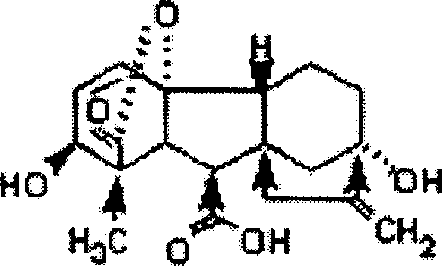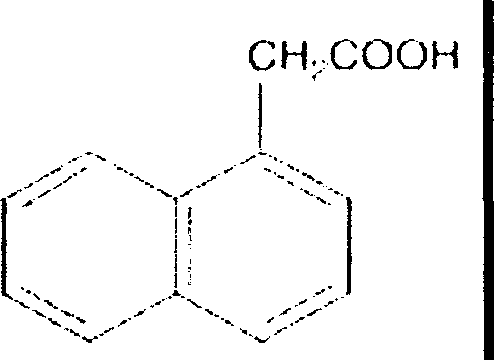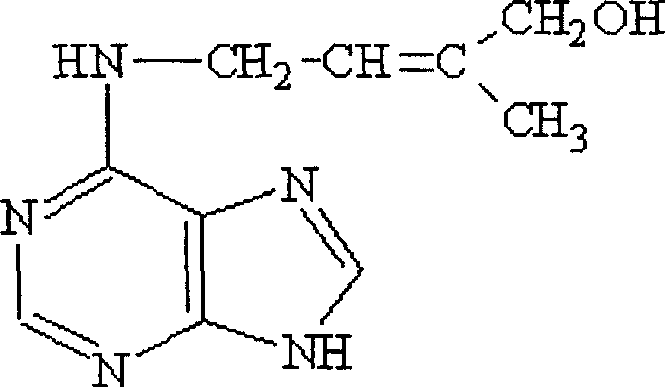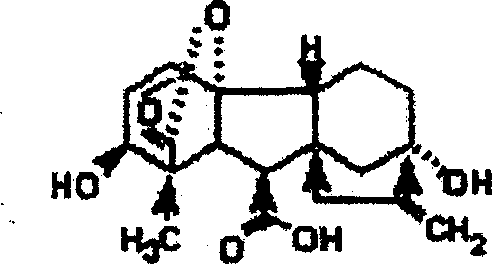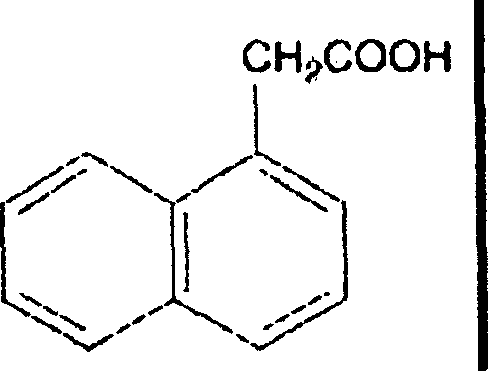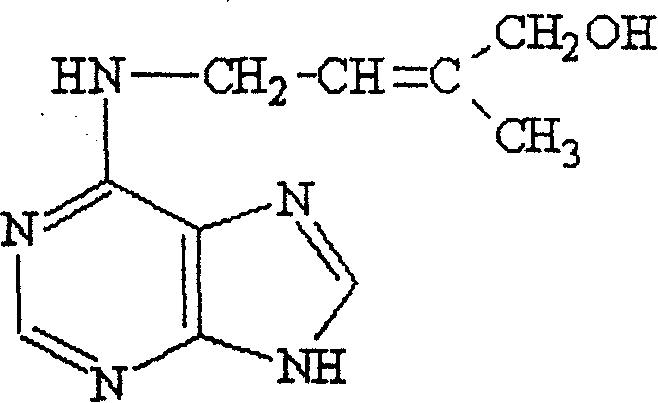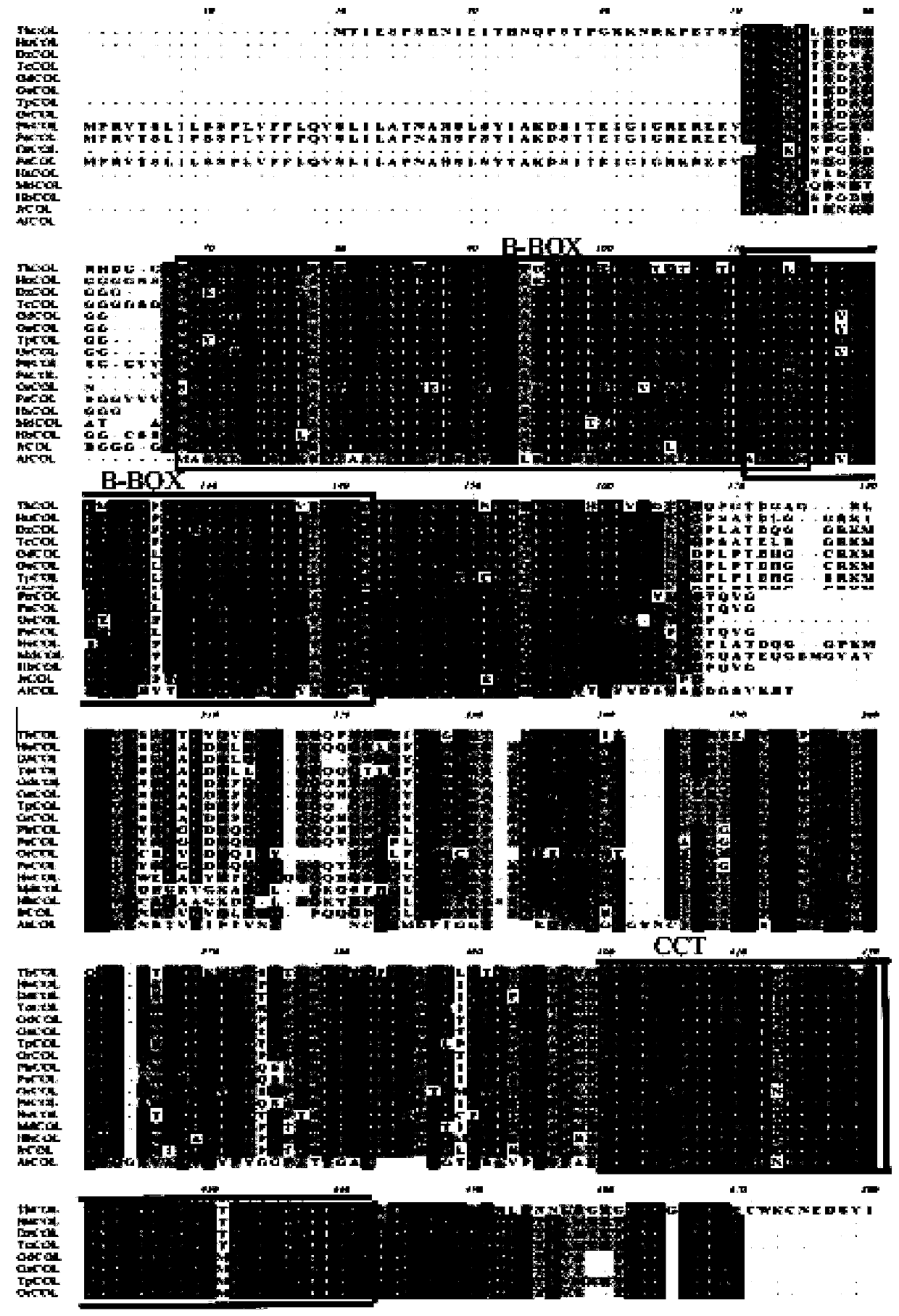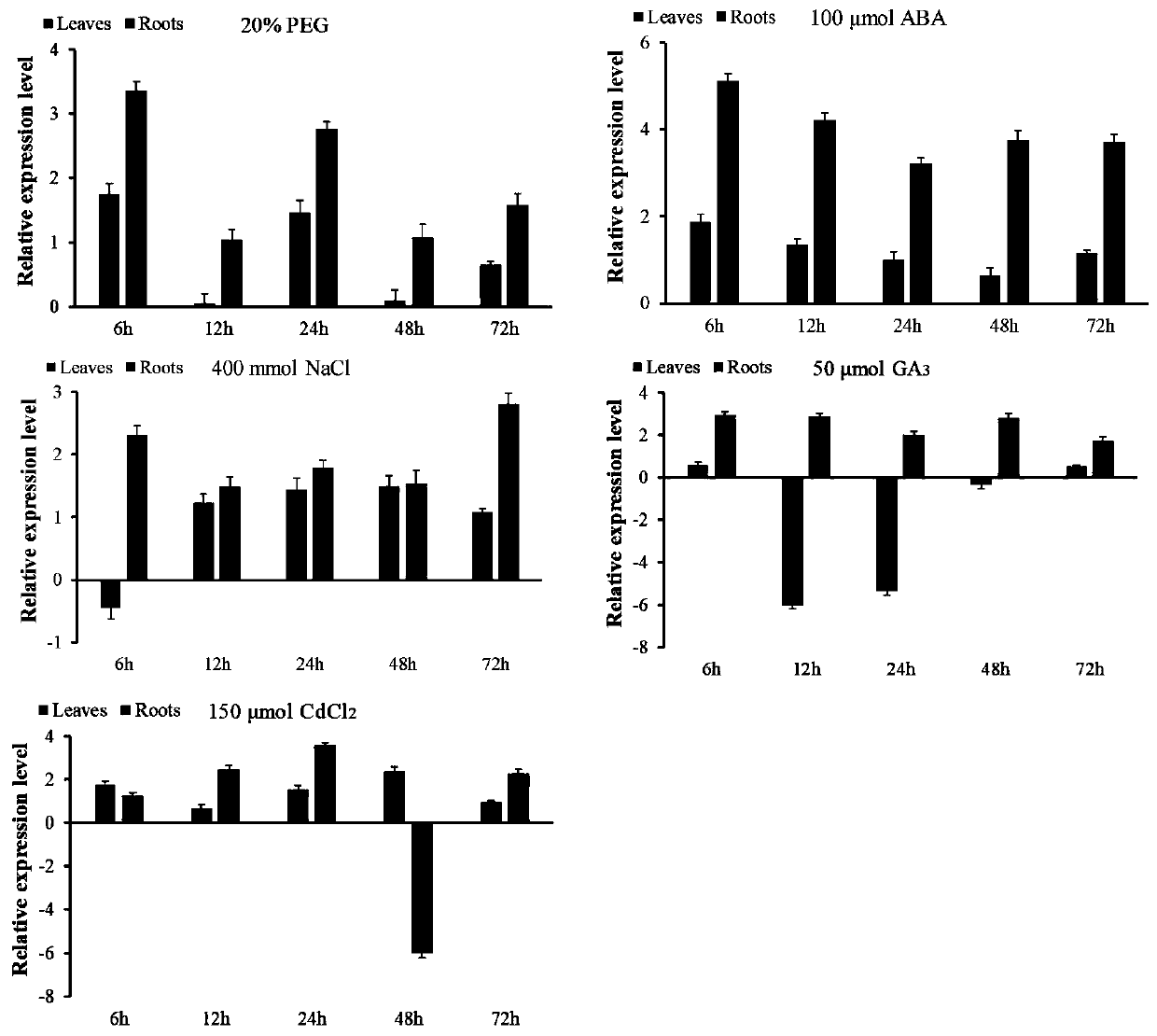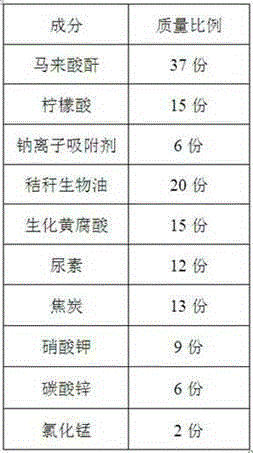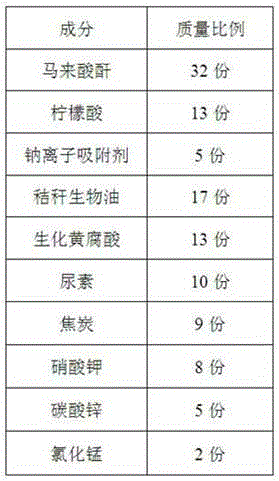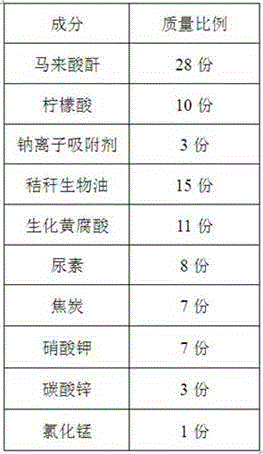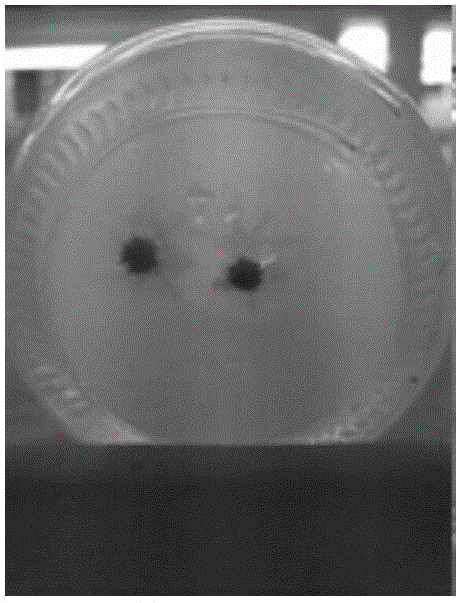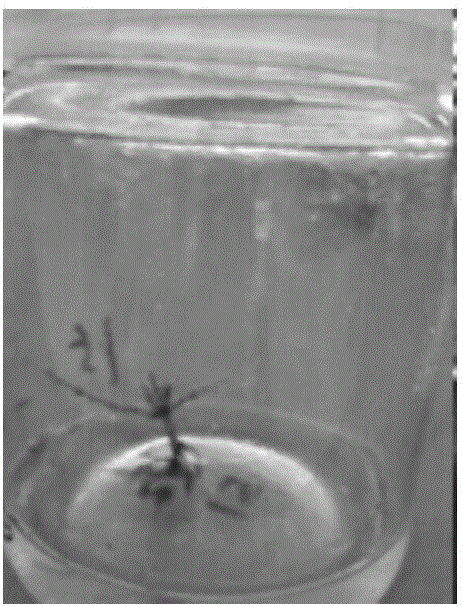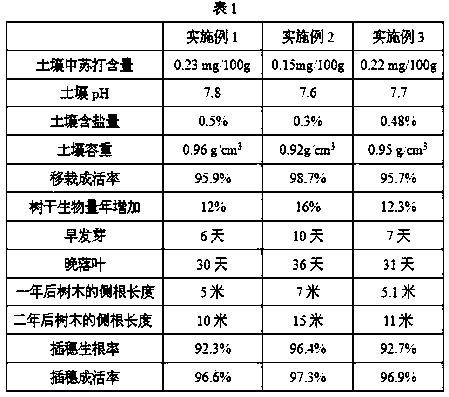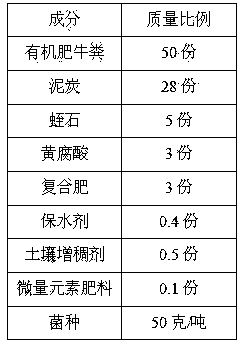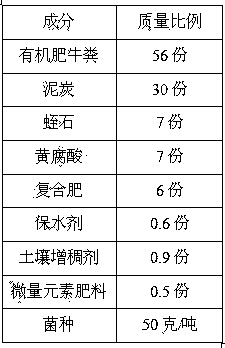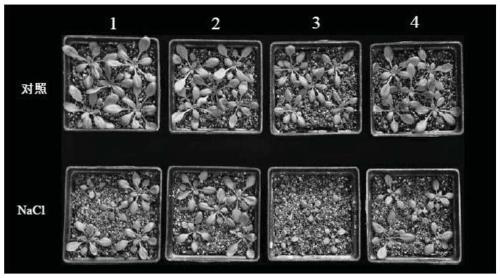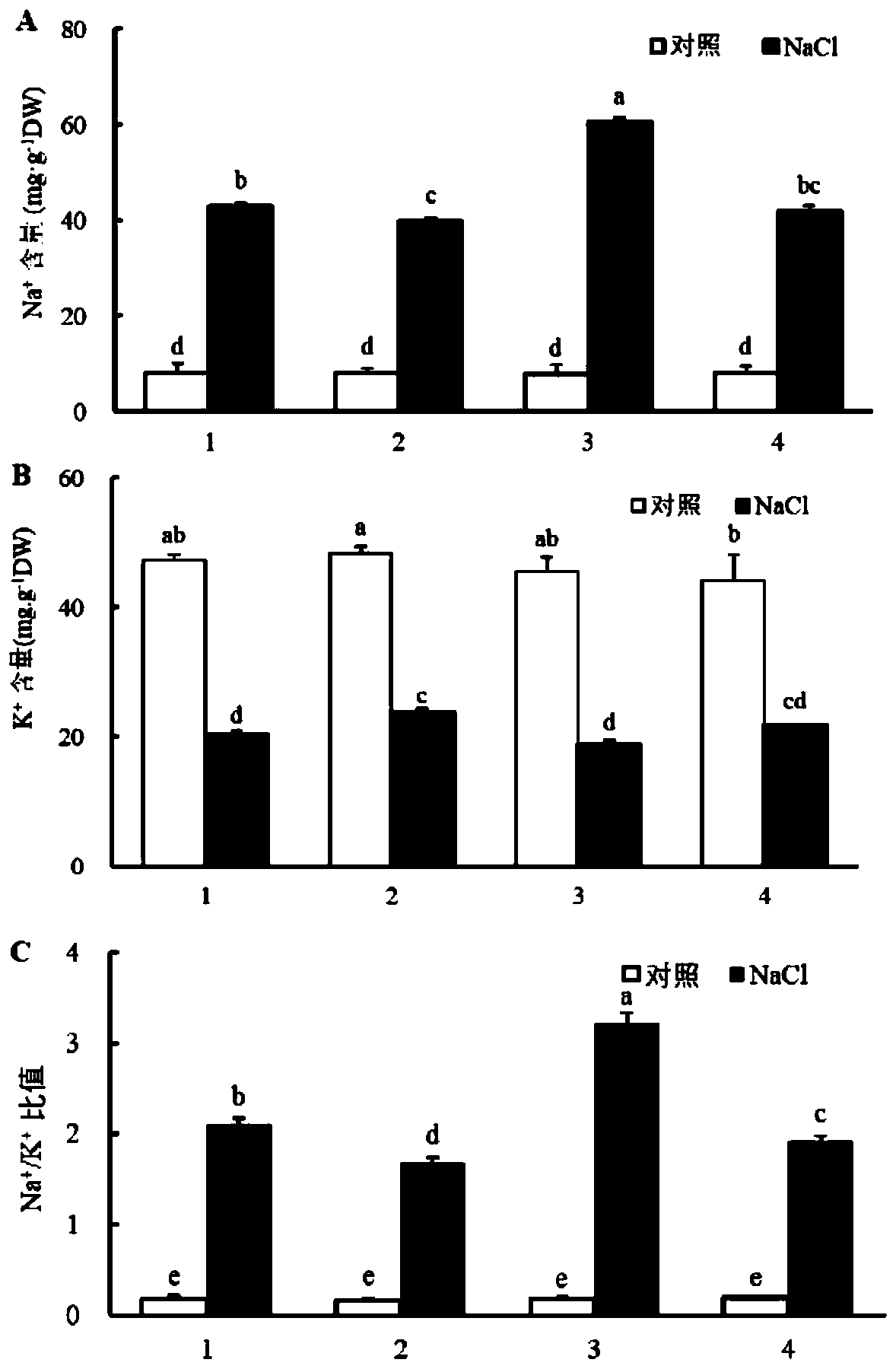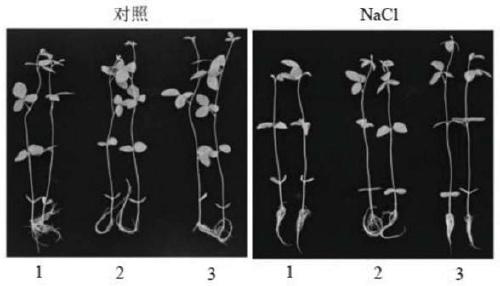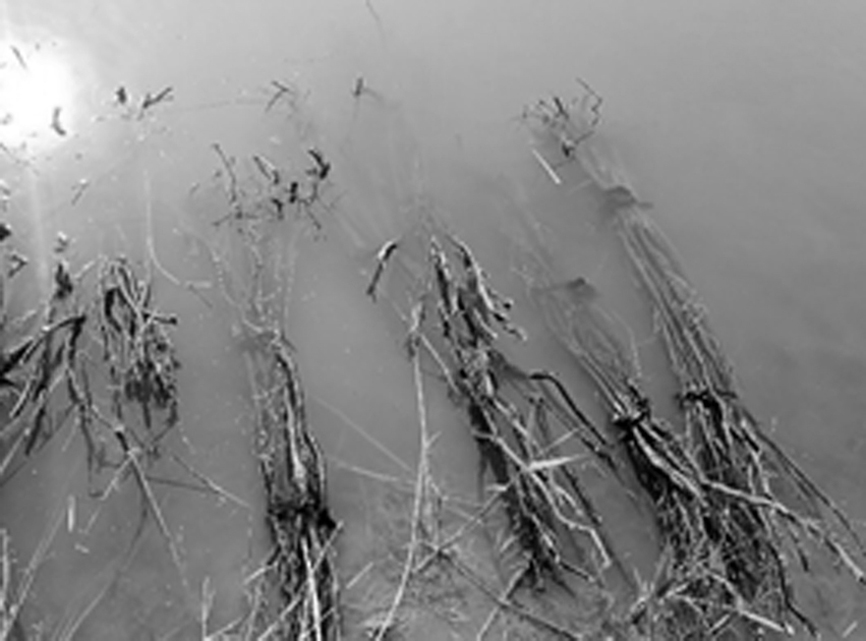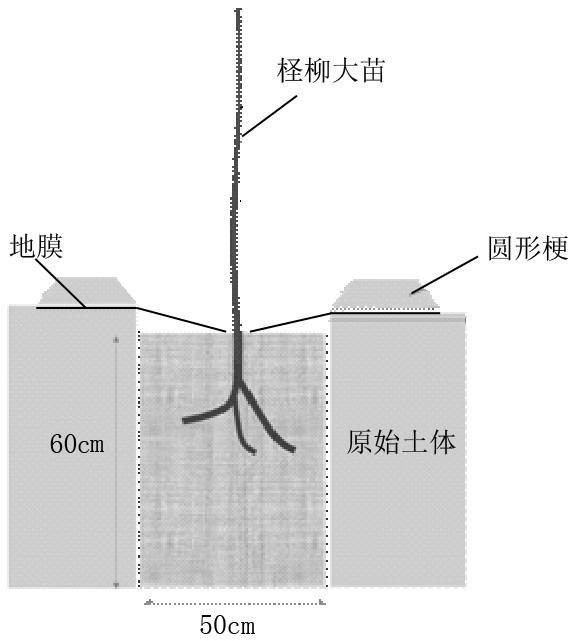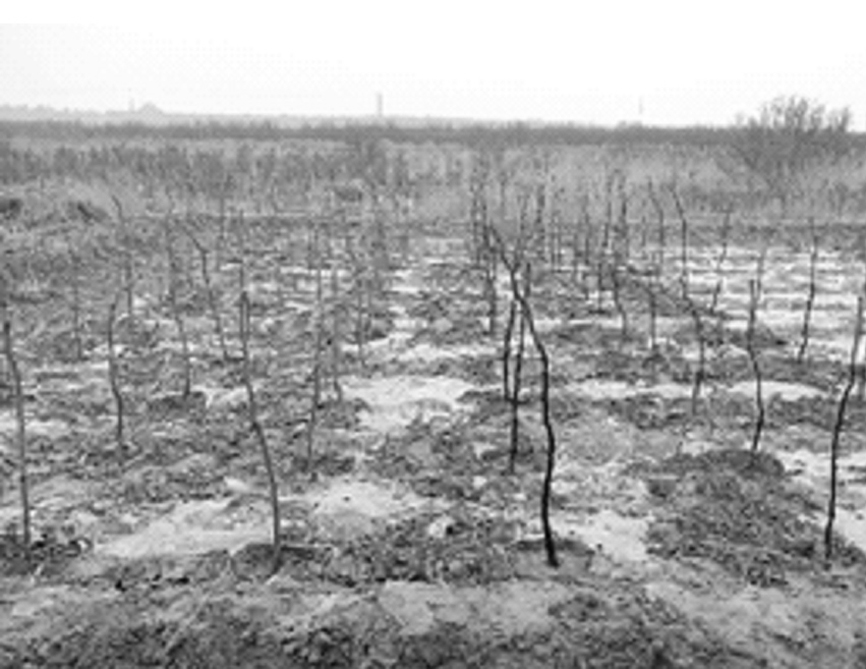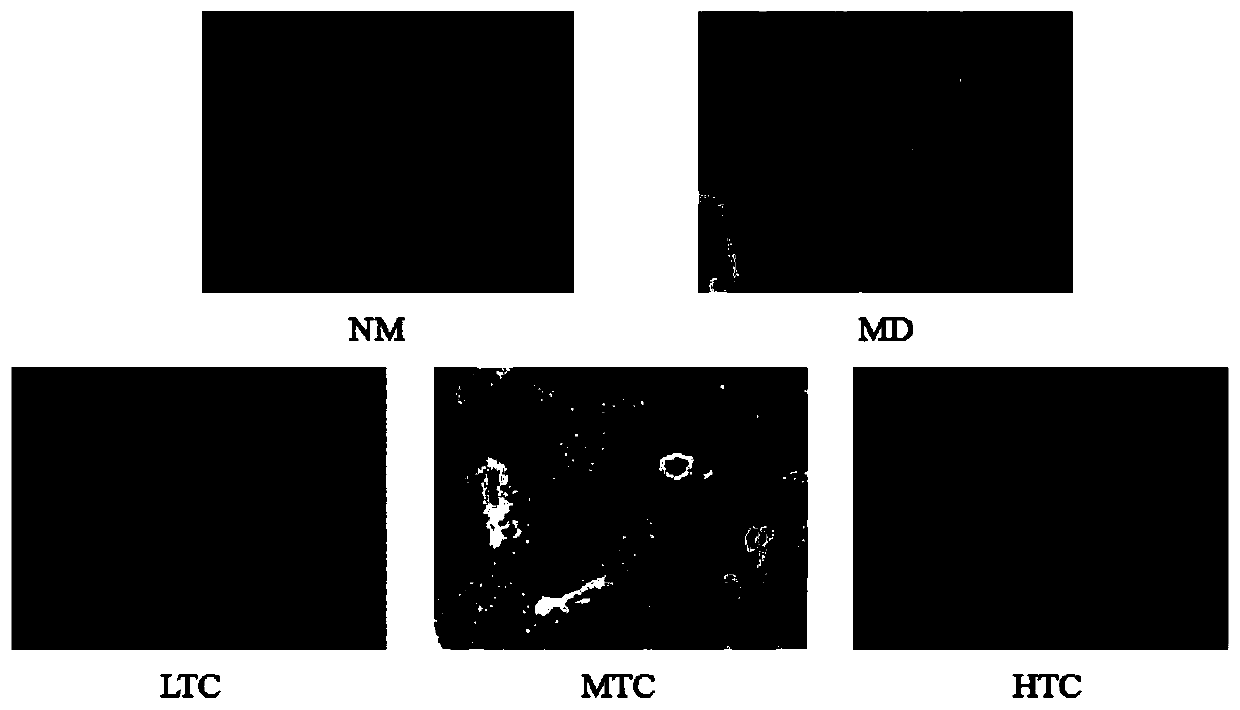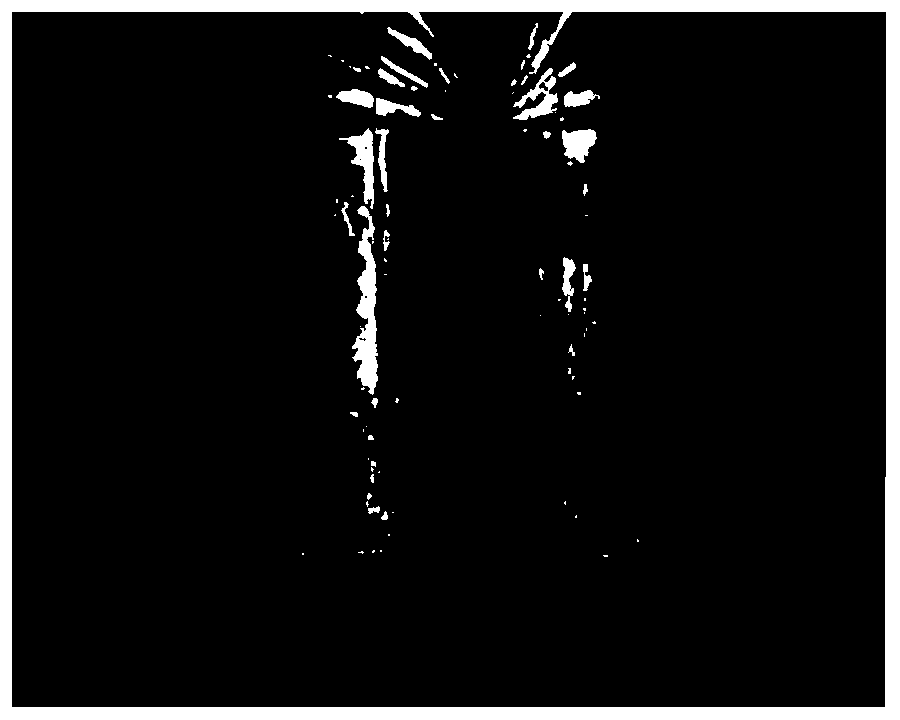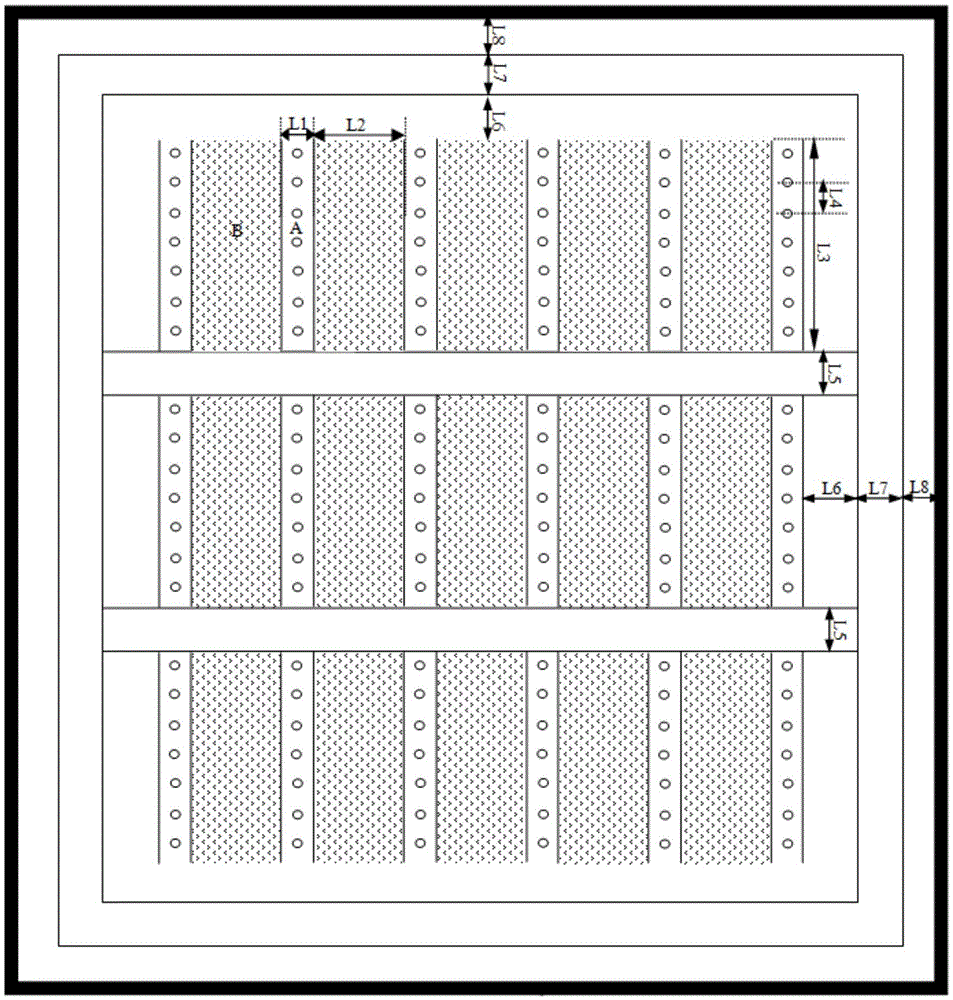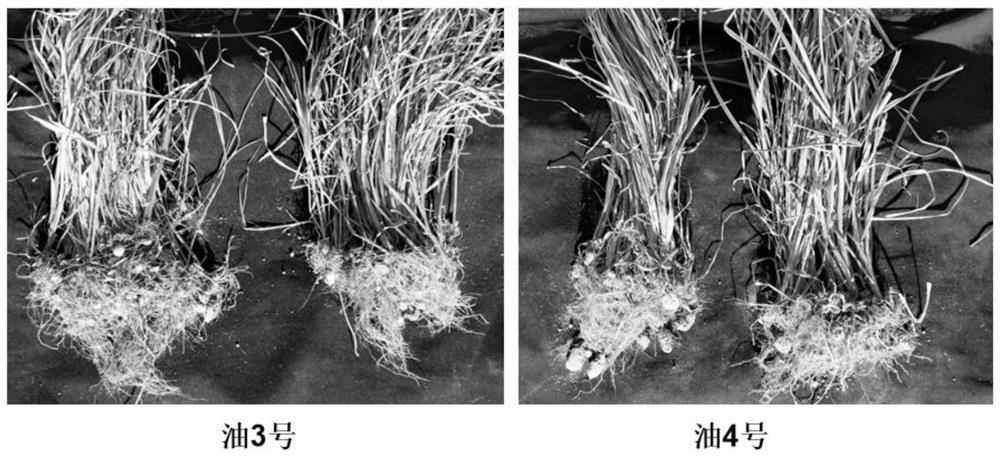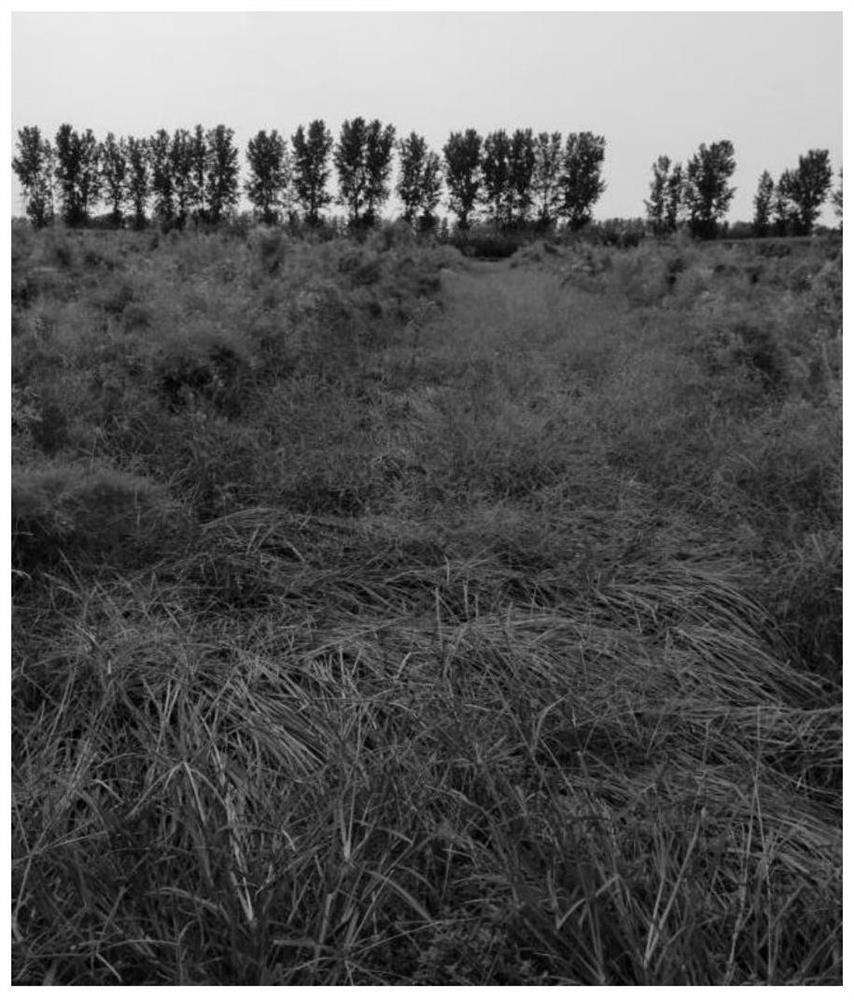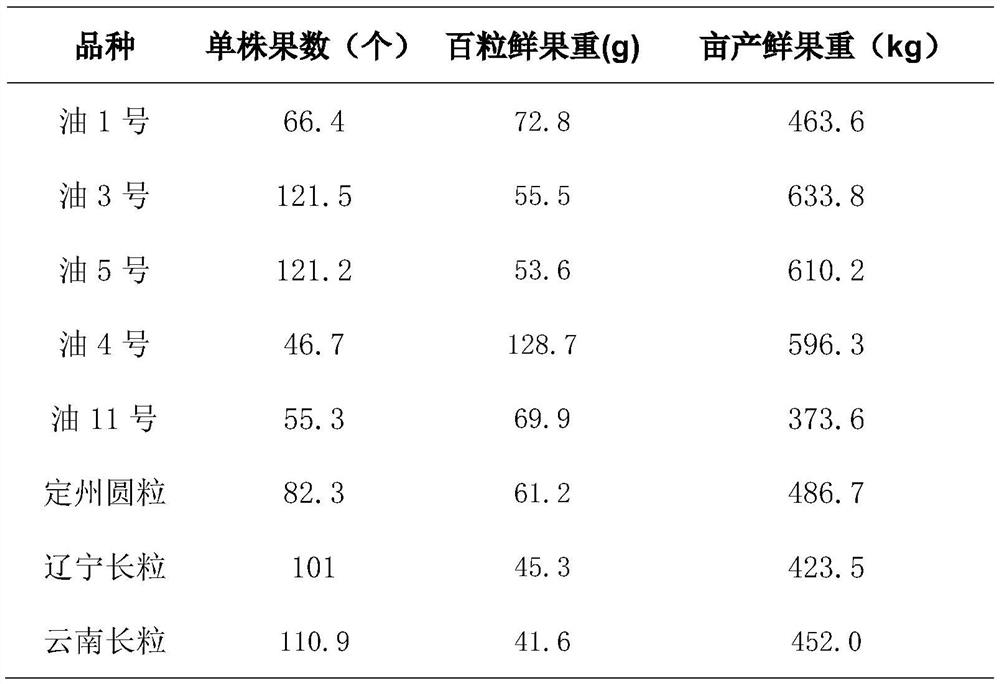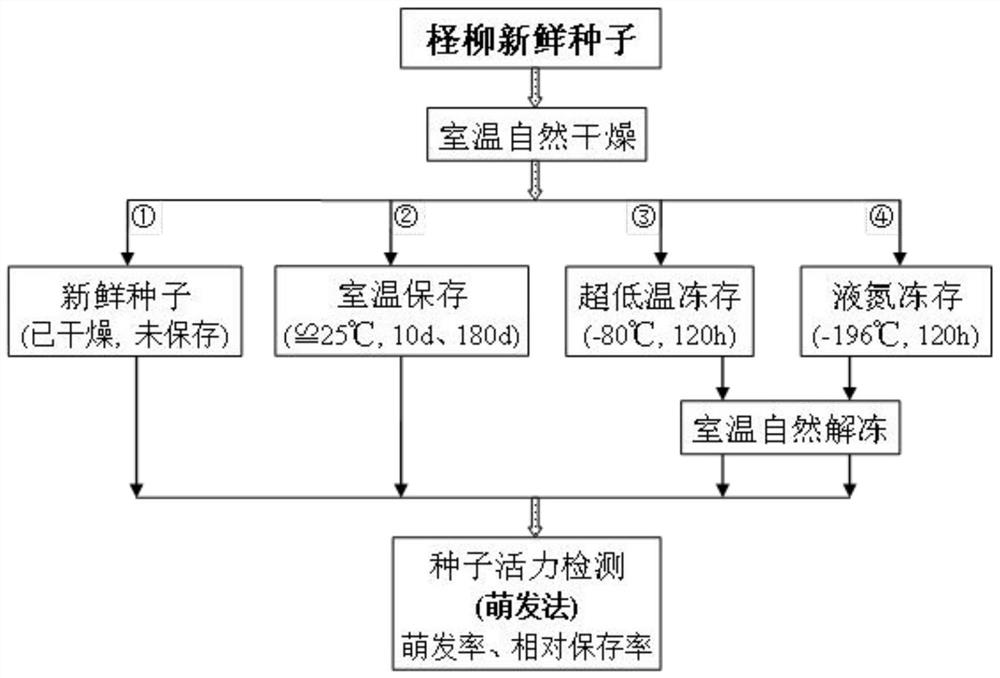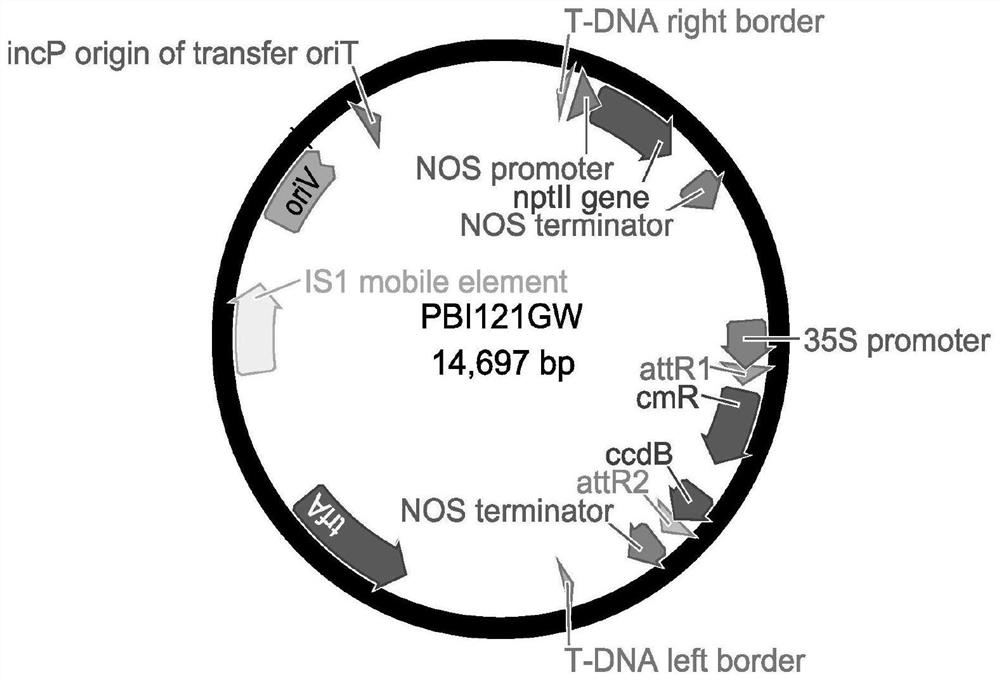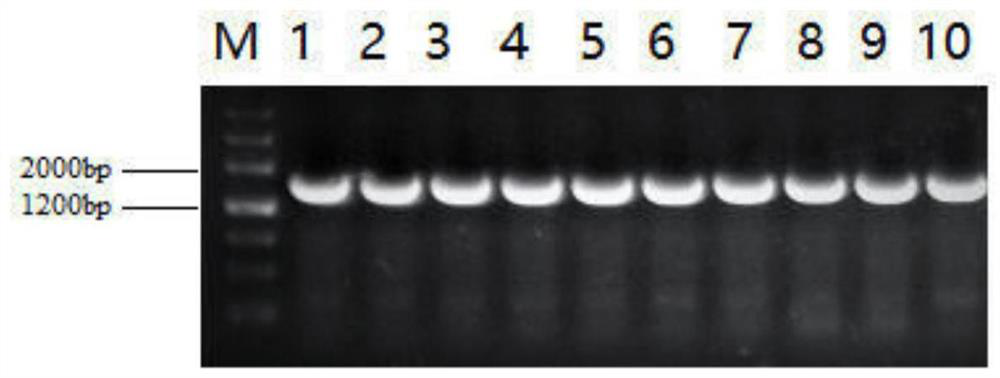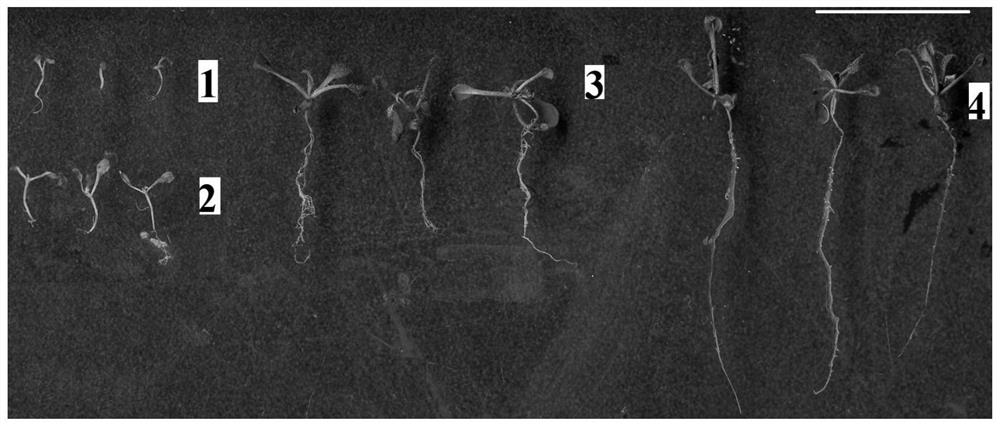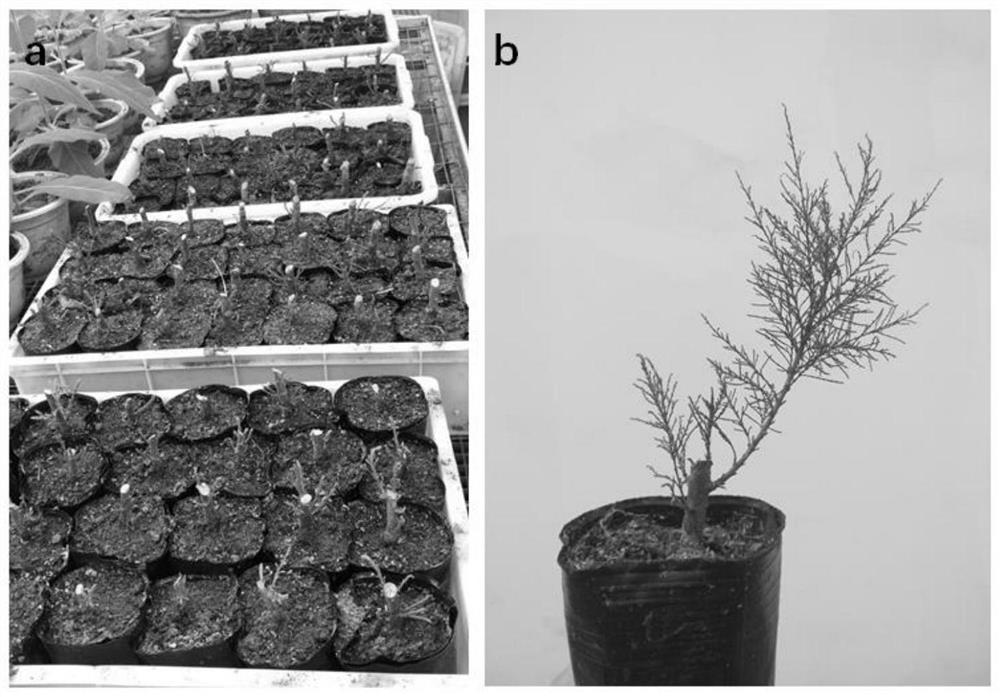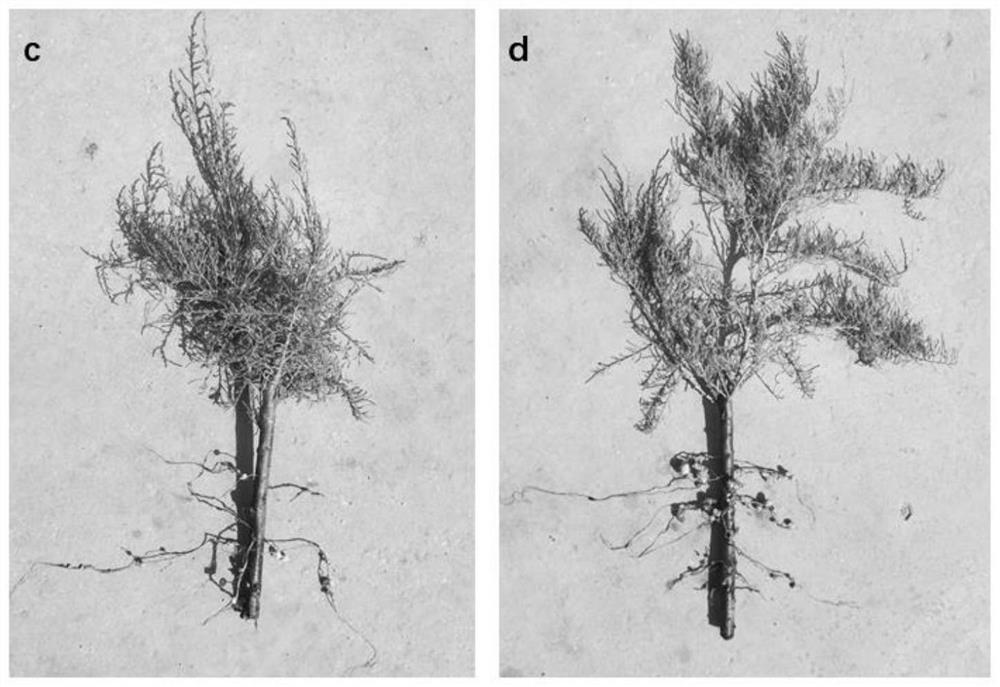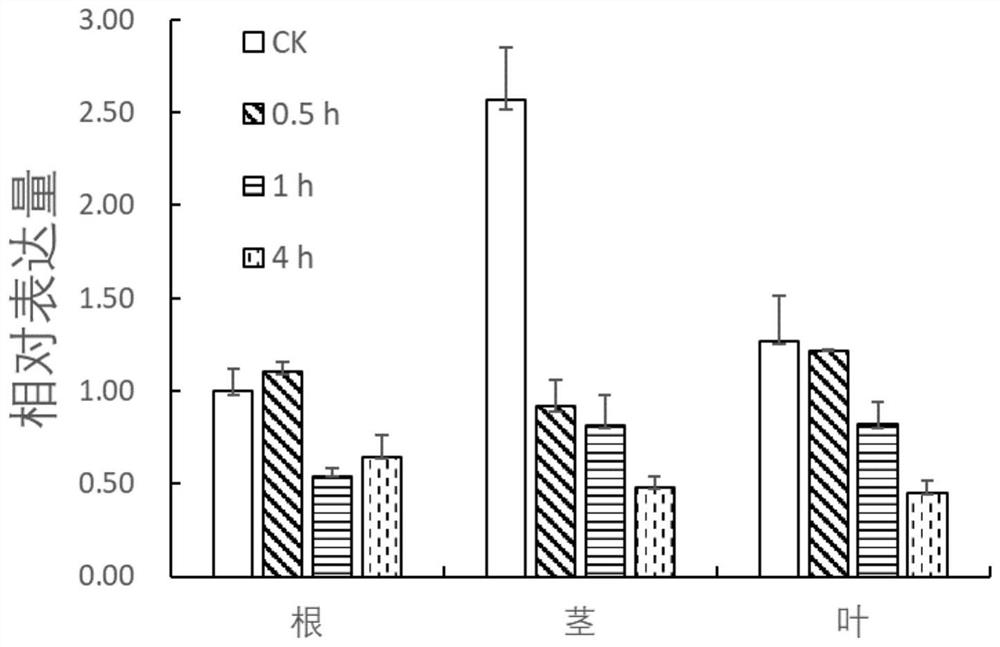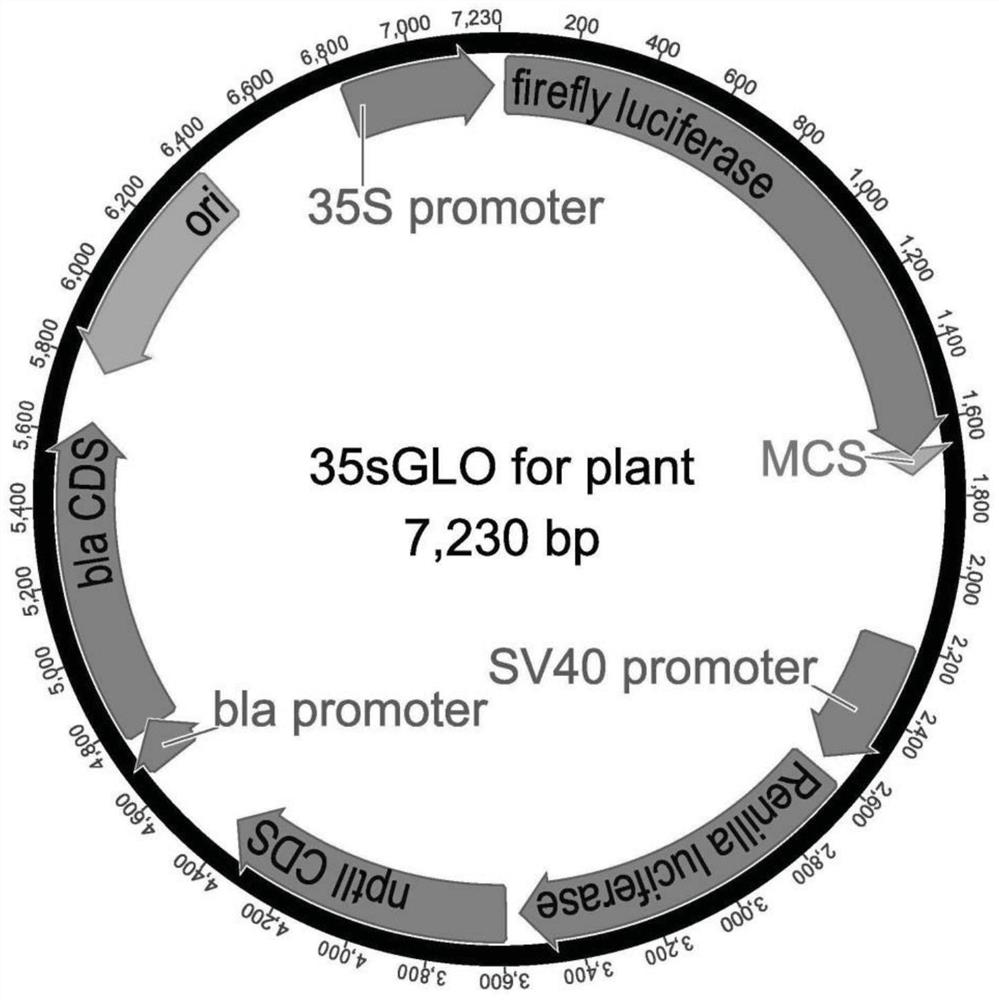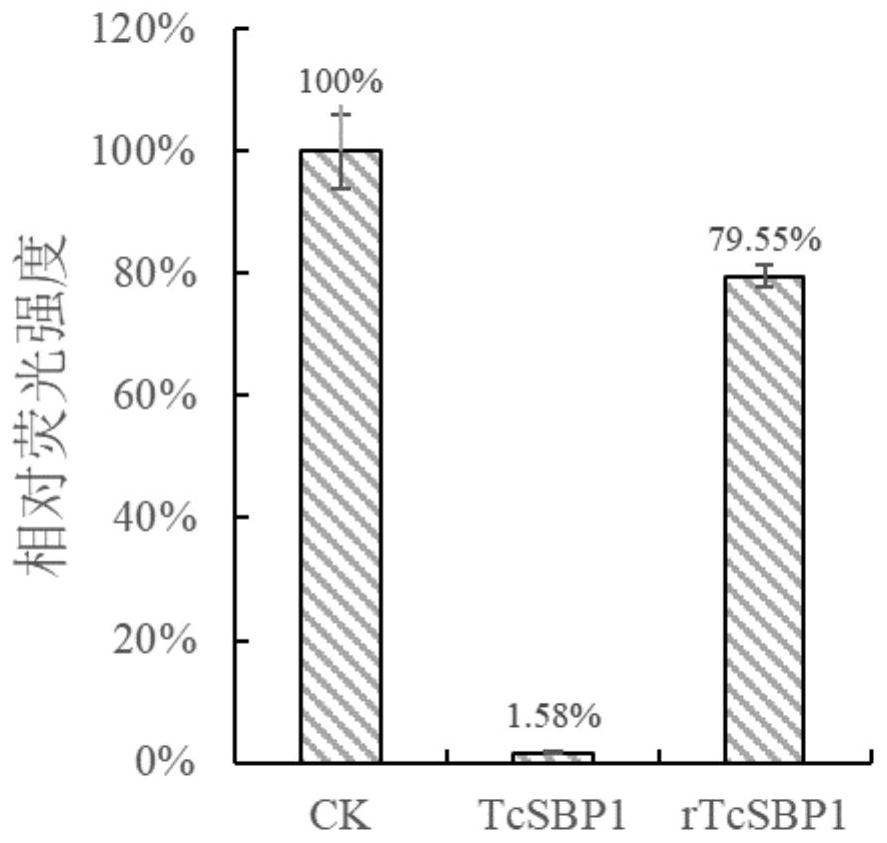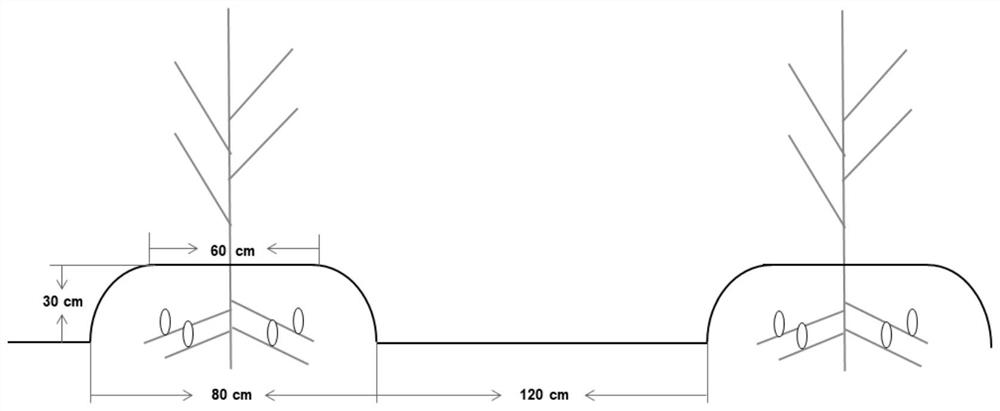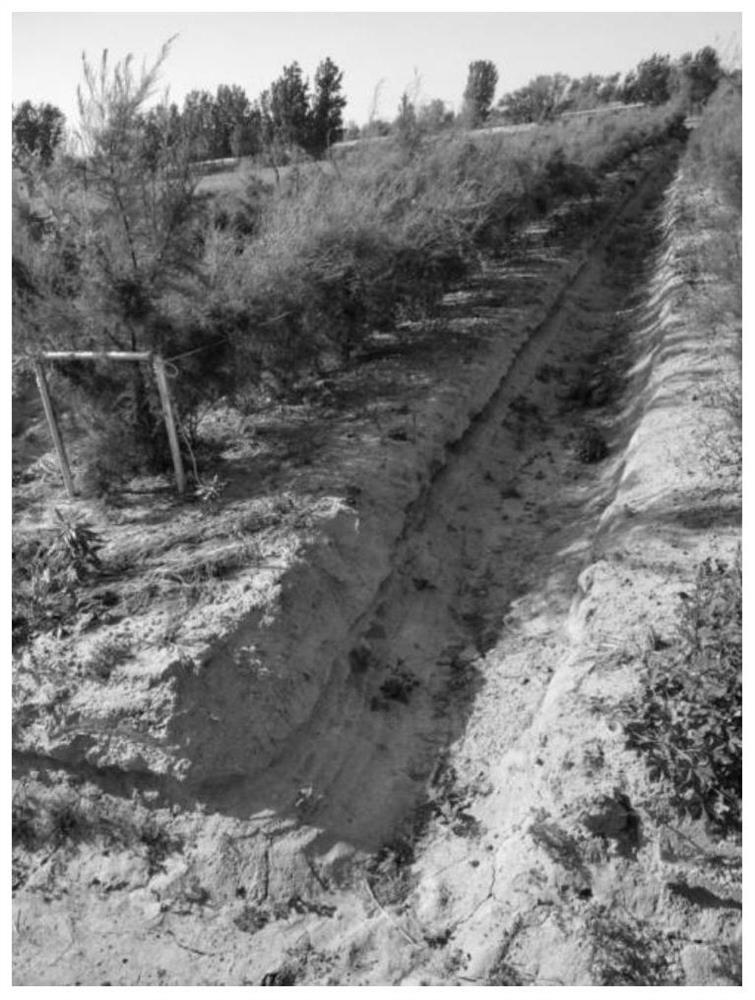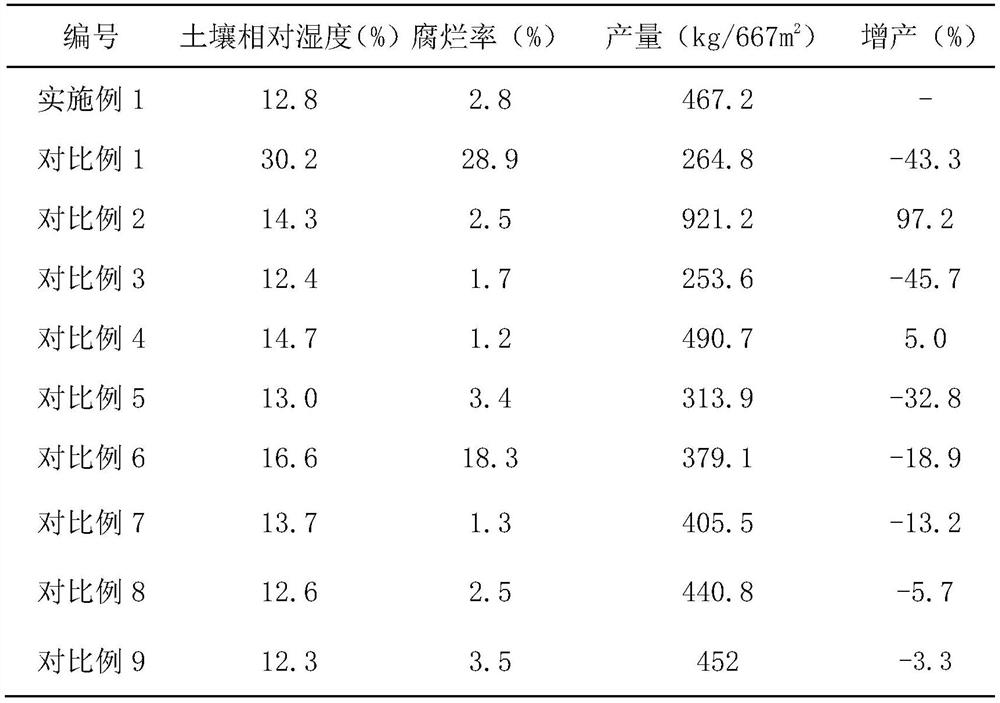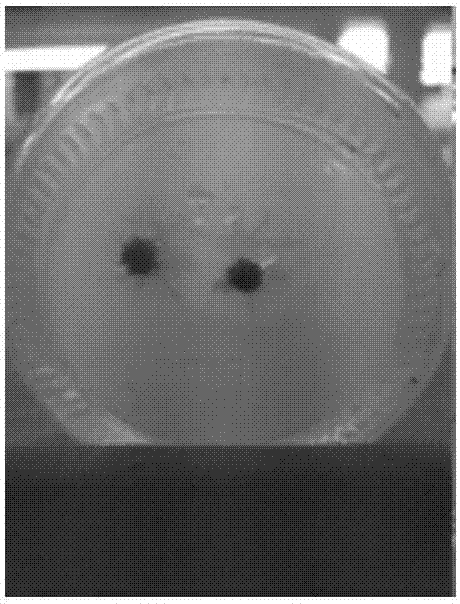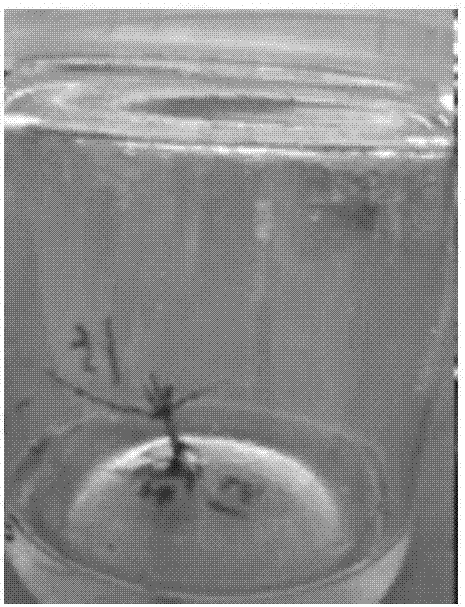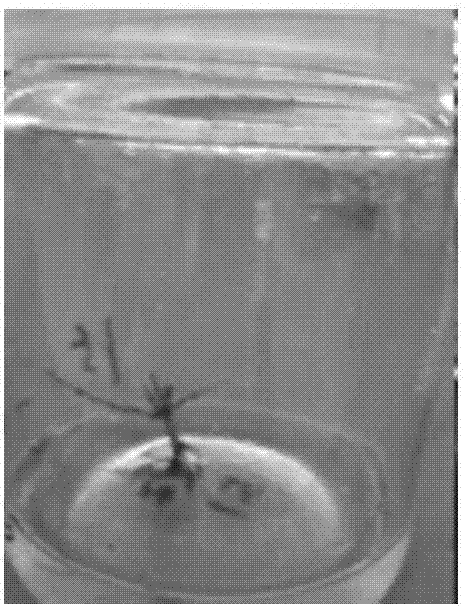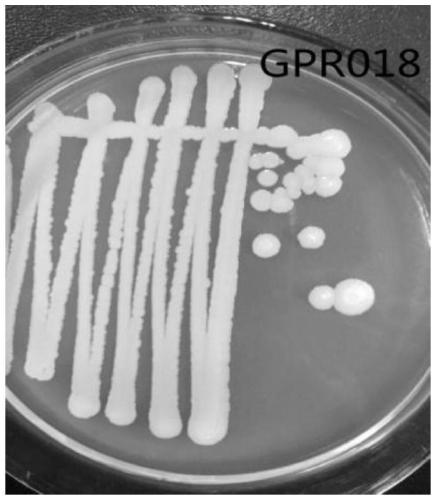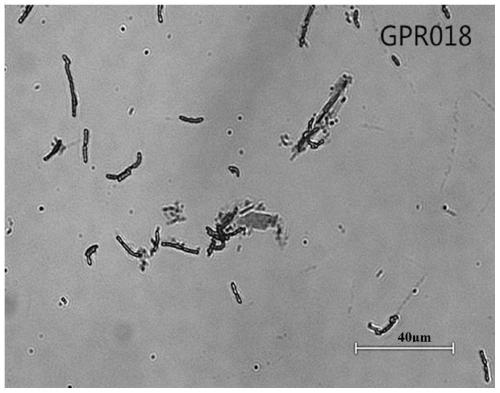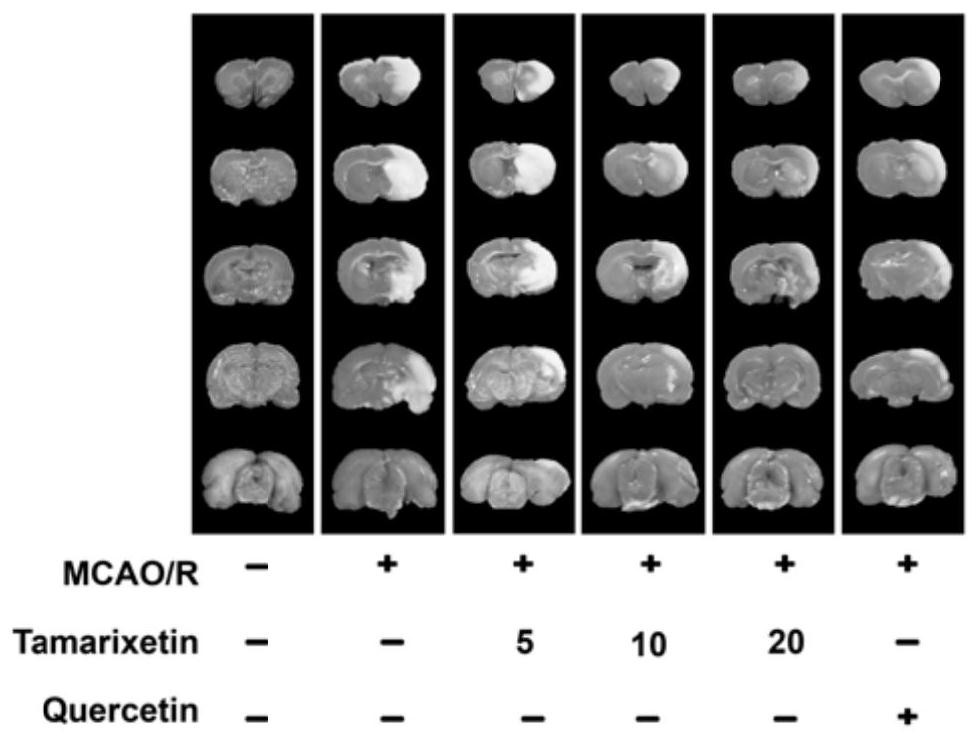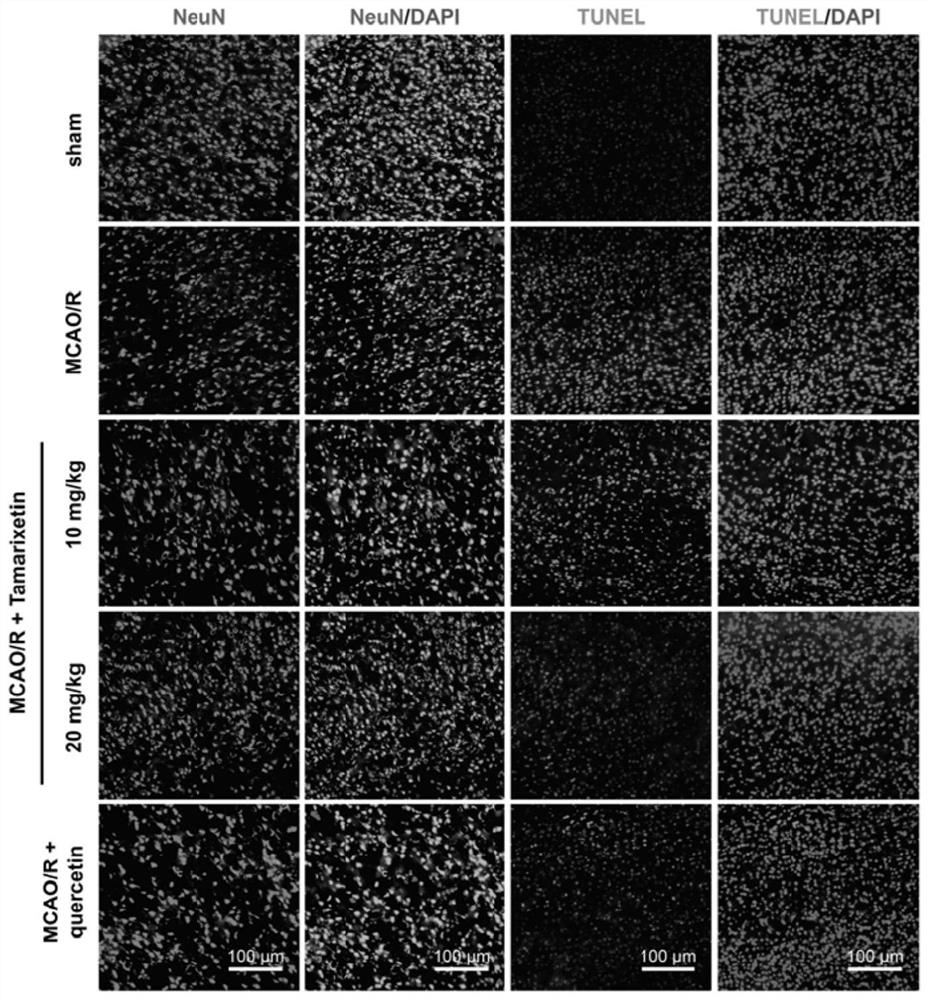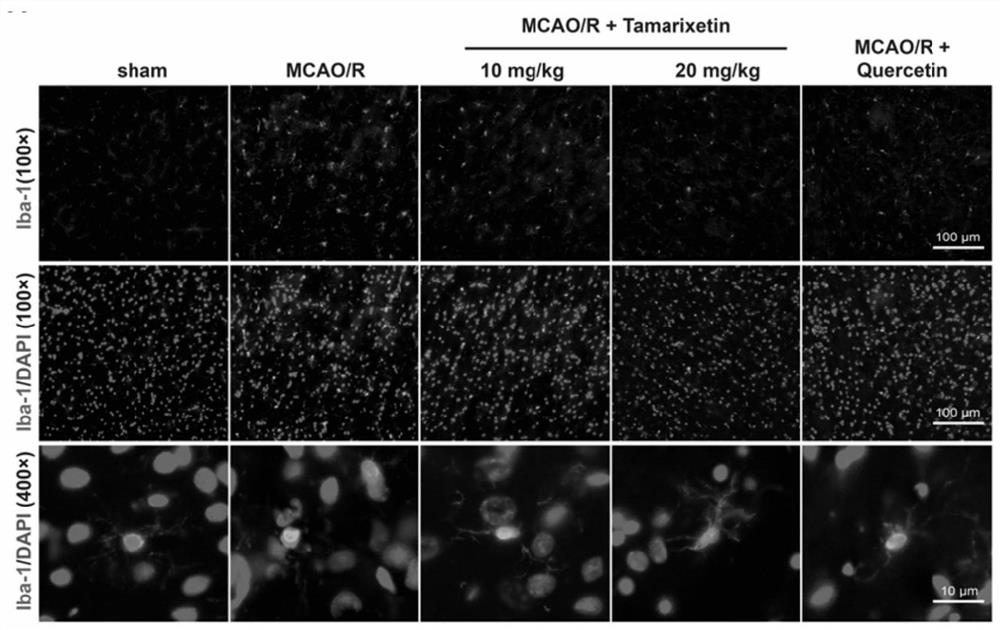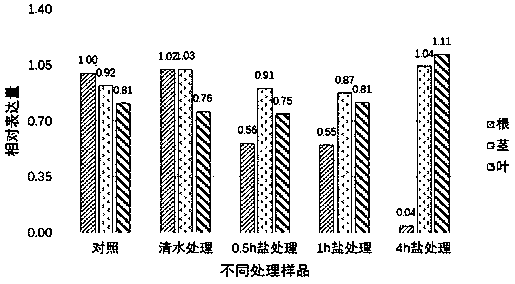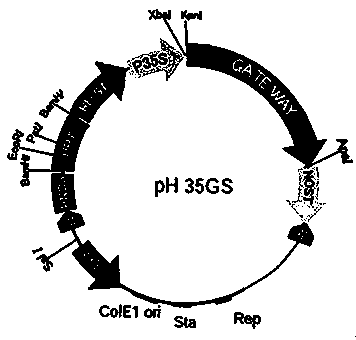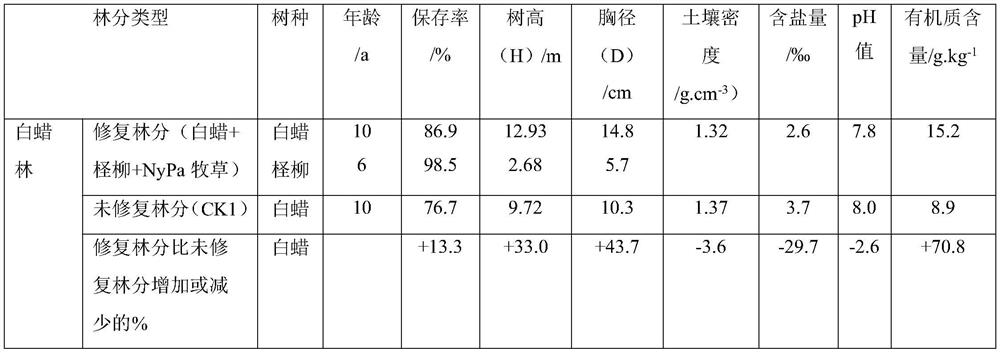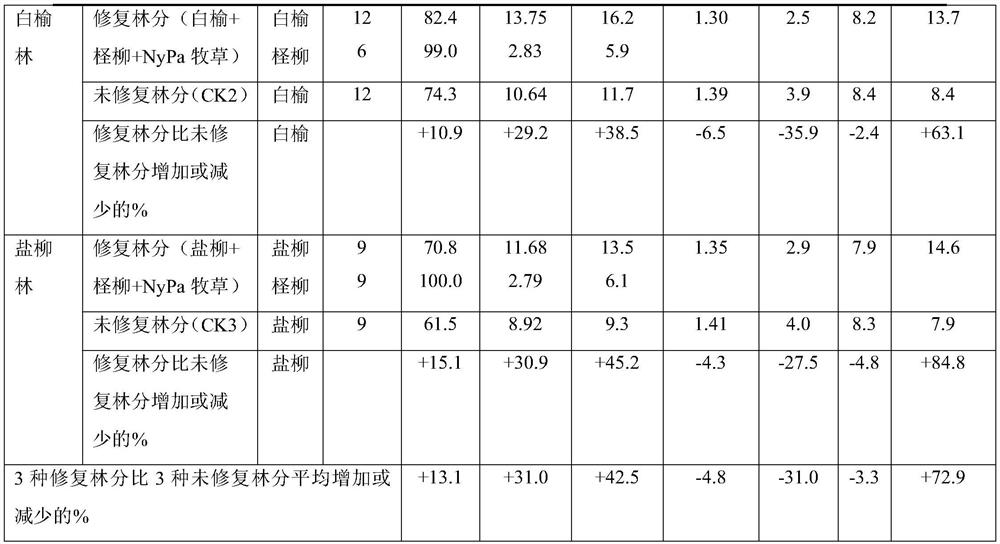Patents
Literature
30 results about "Tamarix spp" patented technology
Efficacy Topic
Property
Owner
Technical Advancement
Application Domain
Technology Topic
Technology Field Word
Patent Country/Region
Patent Type
Patent Status
Application Year
Inventor
Seed treatment in use for accelerating germination of seed
InactiveCN1915032AReduce seed usageIncrease vaccination rateBiocidePlant growth regulatorsCistancheCytokinin
A seed treating agent for promoting the germination of plant seeds, especially the seeds of cistanche, contains gibberelline, naphthylacetic acid, cytokinin, carbendazim, and the optional one of the extracts of three plant roots (tamaisk root, vetchleaf sophora root, etc).
Owner:CHINA AGRI UNIV
Seed treatment agent in use for accelerating germination of seed
InactiveCN100381058CImprove germination rateIncrease vaccination rateBiocidePlant growth regulatorsPlant rootsSophora Root
Owner:CHINA AGRI UNIV
Tamarix hispida COL (Constans-like) transcription factor encoding gene and application thereof
The invention relates to a tamarix hispida COL (Constans-like) transcription factor encoding gene and application thereof, and belongs to the technical field of plant genetic engineering breeding. Inorder to solve the problem that a woody plant with good salt resistance can not be cultured through an existing tamarix hispida COL transcription factor encoding gene, the invention provides the tamarix hispida COL transcription factor encoding gene and the application thereof. The tamarix hispida COL transcription factor encoding gene is characterized in that the whole length of cDNA is 1296bp, and an amino acid sequence encoded by a cDNA sequence includes 431 amino acids which can be used for culturing salt-resistant transgenic plant varieties. An overexpression and suppression expression vector of the ThCOL gene is constructed, and transgenic tamarix hispida is obtained through instantaneous infection. Through experiments, including histochemistry staining, physiological index measurement and the like, a tamarix hispida ThCOL gene overexpression strain is discovered to own obvious salt resistance, and therefore, the tamarix hispida COL transcription factor encoding gene is a good gene used for forest salt resistance genetic engineering breeding.
Owner:NORTHEAST FORESTRY UNIVERSITY
High-zinc saline-alkali soil slow release fertilizer and application of high-zinc saline-alkali soil slow release fertilizer in planting of tamarix leptostachys
InactiveCN104876720AMeet growth needsReduce salt contentCultivating equipmentsFertilizer mixturesPotassium nitrateAlkali soil
The invention provides a high-zinc saline-alkali soil slow release fertilizer. The high-zinc saline-alkali soil slow release fertilizer comprises the following components in parts by mass: 28-37 parts of maleic anhydride, 10-15 parts of citric acid, 3-6 parts of a sodium ion absorbing agent, 15-20 parts of straw biological oil, 11-15 parts of biochemical fulvic acid, 8-12 parts of urea, 7-13 parts of coke, 7-9 parts of potassium nitrate, 3-6 parts of zinc carbonate and 1-2 parts of manganese chloride. The invention also provides a preparation method of the high-zinc saline-alkali soil slow release fertilizer and an application of the high-zinc saline-alkali soil slow release fertilizer in planting of tamarix leptostachys. The high-zinc saline-alkali soil slow release fertilizer has the beneficial effects that the salt content of soil is reduced to 1.2-1.5%, and the sodium ion content of the soil is reduced by 35.6-35.8%; the moisture content of the soil is increased to 26.5-27.1%; the total nitrogen content of the soil is increased by 22.6-25.6%, and available potassium in the soil is increased by 52.1-52.6%; and the rooting rate of tamarix leptostachys is increased to 97.6-97.9% after the high-zinc saline-alkali soil slow release fertilizer is applied.
Owner:WEIFANG YOURONG IND
Afforestation methods of tamarisk in arid and semi-arid regions by hardwood cuttings in summer
ActiveCN104012363BImprove survival rateHigh retention rateClimate change adaptationAfforestationSeedlingHardwood
Owner:XINJIANG ACADEMY OF FORESTRY SCI
Tissue culture rooting method for Tama Tamarix jintaenia
ActiveCN106069782AEarly hair rootFast rootingPlant tissue cultureHorticulture methodsHair rootsInoculation
The invention discloses a tissue culture rooting method for Tama Tamarix jintaenia. The tissue culture rooting method comprises the following steps: (1) a current-year twig of Tama Tamarix jintaenia is selected and taken as an explant for rooting culture; (2) the explant is cut into middle sections with the length of 10-15 cm, sediment on the surface is washed away, and then deep cleaning is performed; (3) the explant is subjected to sterilization on an ultra-clean working table; (4) the explant is cut into small sections with the length of 1.5-2.5 cm, and inoculation is performed in a rooting culture medium (1 / 2 MS, IBA 0.4mg / l, and sucrose 25g / l); (5) culture conditions are set: the temperature is 24+ / -2 DEG C, the illumination intensity is 1500-2000 lx, and the illumination time is 10-14 h / d. The method has the beneficial effects that Tama Tamarix jintaenia can root early and rapidly, first rooting occurs after five days, the rooting time is shortened to 15-21 days, the average root length is about 9 cm after 21 days, roots are relatively long, the average quantity of the roots is 5, the quantity of hair roots is large, the rooting percentage is 100%, the upper growth vigor is good, the seedling cost is greatly reduced, and the industrial production of Tama Tamarix jintaenia is realized.
Owner:GANSU DESERT CONTROL RES INST
A molybdenum-rich microbial fertilizer for saline-alkali land and applications thereof in plantation of tamarix austromongolica
InactiveCN104892304ARich in molybdenumMeet planting requirementsCultivating equipmentsFertilizer mixturesMicroorganismAlkali soil
A molybdenum-rich microbial fertilizer for saline-alkali land is provided. The microbial fertilizer comprises following components by mass: 50-56 parts of an organic fertilizer, 28-30 parts of peat, 5-7 parts of vermiculite, 3-7 parts of fulvic acid, 3-6 parts of a composite fertilizer, 0.4-0.6 part of a water-retaining agent, 0.5-0.9 part of a soil thickening agent, 0.1-0.5 part of a trace element fertilizer and 50 g / t of strains. Applications of the microbial fertilizer in plantation of tamarix austromongolica are also provided. The beneficial effects of the microbial fertilizer and the applications are that the soil salt content is reduced to 0.3-0.5%, the soda content of soil is reduced to 0.15-0.23 mg / 100 g, pH of the soil is reduced to 7.6-7.8, the soil bulk density is reduced to 0.92-0.96 g / cm<3>, actinomycetes and funguses in soil are increased, the survival rate of transplanting of the tamarix austromongolica is 95.7-98.7% and the tamarix austromongolica is well developed in root.
Owner:WEIFANG YOURONG IND
Tamarix chinensis plasma membrane Na+/H+ antiporter gene and application thereof
ActiveCN110066810AHigh similarityImprove salt tolerancePlant peptidesFermentationProtein proteinTamarix chinensis
The invention discloses a tamarix chinensis plasma membrane Na+ / H+ antiporter gene and an application thereof, and belongs to the technical field of gene engineering. The nucleotide sequence of the tamarix chinensis plasma membrane Na+ / H+ antiporter gene is shown as SEQ ID No. 1, and the amino acid sequence of the expressed protein is shown as SEQ ID No. 2. According to the invention, the tamarixchinensis plasma membrane Na+ / H+ antiporter gene is cloned and obtained from the tamarisk for the first time; arabidopsis thaliana, soybean, cotton and yeast which overexpress the tamarix chinensis plasma membrane Na+ / H+ antiporter gene are obtained by transforming the arabidopsis thaliana, the soybean, the cotton and the yeast; the salt tolerance is higher than that of the plasma membrane Na+ / H+antiporter gene of the untransformed or transformed soybean, cotton or arabidopsis thaliana; the result shows that the tamarix chinensis plasma membrane Na+ / H+ antiporter gene has an outstanding effect in the application in improving the salt tolerance of the plant or the yeast and has important application value in the breeding field of improving salt tolerance of plants or bacteria.
Owner:NANJING AGRICULTURAL UNIVERSITY
A kind of method of using salt water to transplant tamarisk large seedlings after germination in saline-alkali land
ActiveCN110447501BHigh transplant survival rateImprove survival rateForestryAlkali soilPhosphoric acid
The invention discloses a method for transplanting germinated tamarisk seedlings in saline-alkali land by using salt water. The method is to excavate tamarix seedlings, retain thick roots, trim off all germinated branches and leaves on the top of the seedlings and the trunk to obtain the trunk, and align the roots of the seedlings in the same direction. , binding; soak the bundled seedlings in salt water at the planting point for 24-72 h; dig tree pits, sprinkle diamine phosphate at the bottom of each tree pit, and plant a soaked sapling in each tree pit; plant Then pour the salt water at the planting point; cover the entire tree pit surface with plastic film, compact the plastic film on the edge of the tree pit with soil, and perform secondary watering according to the soil moisture content. The method provided by the invention can not only break the seasonal restrictions on the transplanting of tamarix seedlings, but also significantly reduce the consumption of fresh water, reduce the cost of greening saline-alkali land, and can significantly improve the transplanting survival rate of tamarix seedlings, which is beneficial to the original soil vegetation of coastal saline-alkali land. Construction is important.
Owner:中国科学院遗传与发育生物学研究所农业资源研究中心
Medicinal Tamarix chinensis extract and application thereof
InactiveCN111012808AEffective treatmentLittle side effectsOrganic active ingredientsMetabolism disorderBiotechnologyRotary evaporator
The invention discloses a medicinal Tamarix chinensis extract. The extract can be used for effectively treating diabetes mellitus, prediabetes mellitus and complications thereof, and treating non-alcoholic fatty liver and atherosclerosis, and the medicinal Tamarix chinensis extract can be compounded with acarbose to synergistically reduce the rise of postprandial blood sugar. The medicinal Tamarixchinensis extract is prepared through the following steps: S1, taking 100 g of Tamarix chinensis leaves, putting the Tamarix chinensis leaves into a portable DFT-200 high-speed rotating traditional Chinese medicine crusher, crushing the leaves for 20 seconds for five times, putting the crushed Tamarix chinensis leaves into 1.5 L of an ethanol-water solution for 2 days, and removing plant residuesby using three layers of filter paper to obtain a plant ethanol-water extract; S2, removing most of the filtrate from the obtained plant ethanol-water extract liquid by using a vacuum rotary evaporator to obtain an oily liquid; and S3, adding a proper amount of petroleum ether into the oily liquid, uniformly mixing, standing, centrifuging at 7500 g for 10 min, discarding the petroleum ether liquid, re-dissolving the obtained precipitate into anhydrous ethanol, and drying by distillation to obtain extract powder.
Owner:SHANDONG UNIV OF TECH
Instantaneous transformation method of Tamarix brixensis
InactiveCN106367436BInstantaneous conversion efficiency improvementShort cyclePlant peptidesGenetic engineeringBiotechnologyTransforming Genes
The invention discloses a tamarix hispida instantaneous transformation method, and relates to a plant instantaneous transgenosis method. The invention aims at solving the problems that an existing tamarix hispida stable transformation cycle is too long and an original tamarix hispida instantaneous transformation method is low in transformation efficiency. The method comprises the following steps: I, selecting tamarix hispida tissue culture seedlings obtained from subculture, and soaking the selected tamarix hispida tissue culture seedlings in high-permeability treatment liquid; II, rapidly transferring the tamarix hispida tissue culture seedlings which have undergone high-permeability treatment into agrobacterium tumefaciens infection liquid which contains a target gene, conducting vacuumizing in a vacuum pump and conducting infection in a constant-temperature oscillator; and III, taking out the infected tissue culture seedlings, washing the tissue culture seedlings, sucking water, inserting the tissue culture seedlings into a sodium co-culture medium and conducting co-culture. With the application of the method, the instantaneous transformation efficiency of the tamarix hispida is greatly improved. On the basis of an enzyme activity determination result of a marker gene GUS instantaneously transformed gene, it shows that the method, in comparison with the original tamarix hispida instantaneous transformation method, can improve a GUS activity by 2.45 times. The method provided by the invention is applicable to the field of plant instantaneous transgenosis.
Owner:NORTHEAST FORESTRY UNIVERSITY
A tamarisk plasma membrane na + /h + antiporter gene and its application
ActiveCN110066810BHigh similarityImprove salt tolerancePlant peptidesFermentationAntiporterNucleotide
The invention discloses a tamarisk plasma membrane Na + / H + The antiporter gene and its application belong to the technical field of genetic engineering. The Tamarix plasma membrane Na + / H + The nucleotide sequence of the antiporter gene is shown in SEQ ID No.1, and the amino acid sequence of the expressed protein is shown in SEQ ID No.2. The present invention clones Tamarix plasma membrane Na for the first time from Tamarix + / H + antiporter gene, through transformation of Arabidopsis, soybean, cotton and yeast, overexpressed Tamarix plasma membrane Na + / H + Arabidopsis thaliana, soybean, cotton and yeast with antiporter gene have lower salt tolerance than untransformed or transformed soybean, cotton or Arabidopsis plasma membrane Na + / H + antiporter gene was higher, indicating that Tamarix plasma membrane Na + / H + The antiporter gene has an outstanding effect in the application of improving the salt tolerance of plants or yeast, and has important application value in the field of improving the salt tolerance breeding of plants or strains.
Owner:NANJING AGRICULTURAL UNIVERSITY
Coding gene of col transcription factor in Tamarix brix and its application
The invention relates to a gene coding for a tamarix bristle COL transcription factor and an application thereof, and belongs to the technical field of plant genetic engineering breeding. In order to solve the problem that it is impossible to use the COL transcription factor coding gene of Tamarix brix to breed woody plants with excellent salt tolerance, the invention provides the COL transcription factor coding gene of Tamarix brix and its application. The full length of cDNA of the tamarisk COL gene of the present invention is 1296bp, and the amino acid sequence encoded by the cDNA sequence includes 431 amino acids, which can be used for cultivating salt-tolerant transgenic plant varieties. The overexpression and suppression expression vectors of ThCOL gene were constructed, and the transgenic Tamarix bristles were obtained by transient infection. Through histochemical staining and determination of physiological indicators, it was found that the ThCOL gene overexpression line of Tamarix biribilis had obvious salt tolerance. Therefore, the COL transcription factor coding gene of Tamarix biribilis is an excellent gene for salt-tolerant genetic engineering breeding of forest trees.
Owner:NORTHEAST FORESTRY UNIVERSITY
A greening method of original soil in heavy saline-alkali land
ActiveCN104396494BReduce salt contentTotal Salt ReductionPlant cultivationCultivating equipmentsTerrainAlkali soil
The invention relates to a method for greening original soil of heavy saline-alkali land. The method comprises the following steps: digging and filling by a machine to form a tamarisk planting groove, planting tamarisk seedlings in the groove, digging to form a vertical drainage ditch at a certain distance along the direction of the groove, forming a rectangular-ambulatory-plane drainage ditch around the periphery of a planting area, deepening two ends of the vertical drainage ditch into the rectangular-ambulatory-plane drainage ditch area, and building a weir on the outer side of the ditch. According to the method for greening the original soil of the heavy saline-alkali land, the salt elimination engineering is not carried out; the soil is not improved and is just simply dug and filled by the machine; soil salt factors are reduced and discharged by using the terrain advantage according to the soil water salt migration mechanism; the environment suitable for growth of plants is formed; the construction engineering quantity is greatly reduced; the application of the exogenous material is greatly reduced; the construction period is effectively shortened; the cost is low; the maintenance is simple.
Owner:TIANJIN TEDA GREEN GRP CO LTD
A method for preventing and controlling freezing damage of Cistanche piculosum
ActiveCN105191705BLarge irradiation areaSpeed up water evaporationPlant protectionFreeze injurySoil moisture content
The invention relates to a method for preventing and controlling the freeze injury of cistanche tubulosa R.Wight. The method comprises the following steps: inoculating cistanche tubulosa R.Wight in autumn, inoculating in next autumn, digging a heat-preserving gully in the outer side of a position 10-20cm away from an inoculation gully, wherein the heat-preserving gully is an inclined gully inclined from a gully cut and a gully bottom, and the vertical depth of the heat-preserving gully is 50-70cm; and carrying out mechanical punning on the upper side and lateral side, close to the tamarix ramosissima side, of the heat-preserving gully. According to the invention, due to the arrangement of the heat-preserving gully, and according to the position, depth and width of the heat-preserving gully, the solar irradiation area is increased, and the evaporation of soil moisture is accelerated, so that the soil moisture content of a cistanche tubulosa R.Wight inoculation area is reduced, and the soil temperature of the cistanche tubulosa R.Wight inoculation area is increased. With the reduction of the soil moisture content of the cistanche tubulosa R.Wight inoculation area and the increasing of the soil temperature of the cistanche tubulosa R.Wight inoculation area, the depth of a frozen soil layer in winter is reduced, thereby preventing the freeze injury of cistanche tubulosa R.Wight caused by low temperature.
Owner:BIOTECH RES CENT SHANDONG ACADEMY OF AGRI SCI
Seedling raising method of tamarisk in open-air containers with hard branch cuttings in arid and semi-arid areas in summer
The invention relates to the technical field of hard branch cutting seedling raising, and relates to a method for raising seedlings of tamarix in arid and semi-arid areas in open-air container hard branch cutting in summer; the following steps are carried out: the first step is to select a site; the second step is to purchase a nutrition cup; The third step is to configure the substrate; the fourth step is to place the cup; the fifth step is to make the ear; the sixth step is to soak the cuttings; the seventh step is to irrigate before cutting; the eighth step is to cut; the ninth step is to manage; The tenth step, out of the nursery. The method for cultivating seedlings by hard branch cuttings in open-air containers in arid and semi-arid areas of the present invention has high cutting survival rate and seedling emergence rate, and low seedling raising cost; realizes the purpose of on-site open-air seedling raising in tamarisk summer afforestation areas, provides seedlings, and solves the problem of summer 1. The production and supply of seedlings for off-season afforestation in autumn provides seedling guarantee for Tamarix afforestation using summer flood and autumn slack water, and solves the problem of production, supply and afforestation of off-season seedlings in actual forestry production.
Owner:XINJIANG ACADEMY OF FORESTRY SCI
A method for intercropping planting of Cistanche cistanche and oily bean in the salinized area of the Yellow River Delta
ActiveCN111109017BEasy to reinforceAchieve sustainable useFabaceae cultivationCultivating equipmentsAlkali soilIntercropping
The invention relates to a method for intercropping planting of Cistanche cistanche and Cistanche oleifera in the salinized area of the Yellow River Delta. Under the condition of salinized soil in the Yellow River Delta, Cistanche cistanche is planted between the rows of Tamarix inoculated with Cistanche cistanche to make full use of the tamarisk The land between the rows can increase the coverage of ground vegetation, reduce the evaporation of ground water, inhibit the accumulation of soil salt to the surface, and realize the greening improvement and sustainable use of saline-alkali land.
Owner:BIOTECH RES CENT SHANDONG ACADEMY OF AGRI SCI
A cDNA sequence of Tamarix androssowii ferritin gene and encoded amino acid sequence
The present invention relates to a cDNA of Tamarix androssowii ferritin gene and an encoded polypeptide thereof. The invention settles a problem that the growing requirement of plant growth can not be satisfied because of low concentration of iron ions in the dry or half-dry soil. The total length of Tamarix androssowii ferritin gene according to the invention is 1179bp, and the gene sequence of Tamarix androssowii ferritin gene is shown in SEQ ID No.1. The amino acid sequence of ferritin gene is shown in SEQ ID No.2. The ferritin gene can increase the iron ion content of transgenic tobacco for more than 20% when introduced into the tobacco. The gene can increase the utilization efficiency of iron ions by transgenic plant, and the requirement of plant growth is satisfied.
Owner:NORTHEAST FORESTRY UNIVERSITY
A key gene tcsbp5 regulating the salt tolerance of Tamarix and its application
ActiveCN109988775BReduced plant salt toleranceDecreased germination rate of salt tolerancePlant peptidesFermentationBiotechnologyNucleotide
The invention discloses a key gene TcSBP5 regulating tamarix salt tolerance, the nucleotide sequence of which is shown in SEQ ID No.1. The protein product expressed by TcSBP5 is Tamarix SBP transcription factor, and its amino acid sequence is shown in SEQ ID No.2. The invention obtains Arabidopsis thaliana overexpressing the TcSBP5 gene by transforming Arabidopsis thaliana, the salt-tolerant germination rate of its seeds is significantly reduced, the salt-tolerant physiological index of its plants is significantly reduced, and the typical salt-sensitive phenotype of growth inhibition is generally shown , indicating that the gene is an important key factor regulating plant salt tolerance, and has important application value in the field of forest tree salt tolerance breeding.
Owner:NANJING FORESTRY UNIV
A method for making Cistanche tuberosa-Tamarisk integrated seedlings
ActiveCN111108929BGuarantee normal developmentGuaranteed to surviveGrowth substratesCulture mediaSeedlingBonsai
The invention discloses a method for making integrated seedlings of Cistanche cistanche-Tamarisk. The method involves sowing Cistanche cistanche seeds while cutting the branches of Tamarix. Some of them have no seeds, which can ensure that the early Tamarix root system will not be affected by the inoculation of Cistanche tuberosa seeds, and can effectively prevent the distribution of Cistanche tuberosa inoculation from being too concentrated; The cutting branches survived, which promoted the germination and inoculation of Cistanche tuberosa seeds; the method involved in the present invention has the characteristics of easy operation and easy promotion, and is suitable for directly planting Tamarix-Cistanche tuberosa integrated seedlings in the field, and is also suitable for the public to plant Cistanche tuberoses on balconies And the demand for bonsai is conducive to market promotion.
Owner:BIOTECH RES CENT SHANDONG ACADEMY OF AGRI SCI
A Tamarix salt stress-responsive gene tcsbp1 and its miRNA resistance target rtcsbp1 and its application
Owner:NANJING FORESTRY UNIV
A cultivation method of Cistanche tubulosa suitable for saline-alkali areas in the Yellow River Delta
ActiveCN111109001BIncrease productionShallow depth settingPlant cultivationCultivating equipmentsAlkali soilCistanche
Owner:BIOTECH RES CENT SHANDONG ACADEMY OF AGRI SCI
Tissue Culture Rooting Method of Tamarix jinta
ActiveCN106069782BEarly hair rootFast rootingHorticulture methodsPlant tissue cultureSucroseSaccharum
The invention discloses a tissue culture rooting method for Tama Tamarix jintaenia. The tissue culture rooting method comprises the following steps: (1) a current-year twig of Tama Tamarix jintaenia is selected and taken as an explant for rooting culture; (2) the explant is cut into middle sections with the length of 10-15 cm, sediment on the surface is washed away, and then deep cleaning is performed; (3) the explant is subjected to sterilization on an ultra-clean working table; (4) the explant is cut into small sections with the length of 1.5-2.5 cm, and inoculation is performed in a rooting culture medium (1 / 2 MS, IBA 0.4mg / l, and sucrose 25g / l); (5) culture conditions are set: the temperature is 24+ / -2 DEG C, the illumination intensity is 1500-2000 lx, and the illumination time is 10-14 h / d. The method has the beneficial effects that Tama Tamarix jintaenia can root early and rapidly, first rooting occurs after five days, the rooting time is shortened to 15-21 days, the average root length is about 9 cm after 21 days, roots are relatively long, the average quantity of the roots is 5, the quantity of hair roots is large, the rooting percentage is 100%, the upper growth vigor is good, the seedling cost is greatly reduced, and the industrial production of Tama Tamarix jintaenia is realized.
Owner:GANSU DESERT CONTROL RES INST
A rhizosphere-promoting Bacillus adenii and its application
ActiveCN108102958BImprove salt and alkali resistanceIncrease moisture contentBiocidePlant growth regulatorsBiotechnologyAlkali soil
The invention discloses a rhizosphere growth-promoting bacillus arborii in heavy saline-alkali soil and its application. The strain can improve the saline-alkali tolerance of Tamarix in heavy saline-alkali environment. The rhizosphere growth-promoting bacillus arborii of the heavily saline-alkaline soil of the present invention is made into a biological agent, inoculated around the root system of Tamarix, and after a certain period of salt stress, it can promote the growth of Tamarix and improve the growth of Tamarix compared with no inoculation of the agent. Root and plant water content. Therefore, the invention can be used as an inoculant in heavy saline-alkali habitats, and provides excellent strain resources for improving the saline-alkali resistance of Tamarix tamarix.
Owner:SHANDONG FOREST SCI RES INST
A kind of recyclable low-cost dry bare ground shrub potted method
ActiveCN109661964BConvenient sourceEasy to assembleSelf-acting watering devicesCultivating equipmentsAmorpha fruticosaHibiscus
The invention relates to a recyclable low-cost method for potting shrubs in arid bare ground. The method comprises the following steps: 1), digging and planting holes; 2), assembling potted plants; soil; 4), pruning branches and leaves; 5), fully watering; 7), covering with water-retaining rubber pad. The potting method provided by the present invention is used for the temporary greening project of bare land in arid areas, and the method improves the survival rate of shrubs, and the applicable shrub species include: Ligustrum microphylla, Buxus microphylla, Amorpha fructus, Hibiscus, Tamarix, Bauhinia, and Honeysuckle etc.; potting containers and plants can be relocated as a whole, recycled repeatedly, without post-maintenance management; container components do not need to be customized, low cost, easy to purchase, easy to assemble, and effectively improve the efficiency and effect of bare land treatment projects.
Owner:LINGNAN LANDSCAPE
A middle zone forest layer of a three-layer ecological sand-preventing and soil-fixing forest belt and its forestation method
ActiveCN110178557BEasy to viewUnique ornamentalCultivating equipmentsOrganic fertilisersBacillus licheniformisEcological environment
Owner:广州崇科知识产权运营有限公司
Application of tamaristin in preparation of medicine for preventing or treating ischemic encephalopathy
PendingCN114767666AGood treatment effectSignificant improvementOrganic active ingredientsNervous disorderNeurological impairmentPharmacometrics
The invention belongs to the field of natural medicines, and particularly relates to application of tamaristin in preparation of medicines for preventing or treating ischemic encephalopathy. Specifically, the invention relates to application of tamarix flavin in preparation of drugs for preventing or treating cerebral arterial thrombosis. Pharmacological experiments show that tamarix flavin has an obvious treatment effect on dyskinesia and neurological impairment of focal ischemic stroke model rats caused by middle artery ischemia reperfusion; the compound also has a remarkable improvement effect on learning and memory cognitive impairment of the model rat, so that the compound can be used for preparing medicines for preventing or treating related ischemic encephalopathy.
Owner:NORTHEASTERN UNIV +1
A key gene tcarf6 of Tamarix salt stress response and its application
The invention discloses a tamarix salt stress response key gene TcARF6 and its application. The nucleotide sequence of the key gene TcARF6 is shown in SEQ ID NO.1. The expression protein of tamarix salt stress response key gene TcARF6, its amino acid sequence is shown in SEQ ID NO.2. The present invention uses tamarix salt stress treated tamarix as material, and clones TcARF6 gene through RACE technology. Through real-time fluorescent quantitative detection technology, the expression pattern of TcARF6 gene was detected after Tamarix tamarix was stressed, and the key of its response to stress was verified. At the same time, the gateway technology was used to construct the overexpression vector pH35GS‑TcARF6 of Tamarix tamarix. Driven by the promoter P35GS, TcARF6 can be highly expressed in the transgene. The relative quantification of TcARF6 in response to salt stress showed that TcARF6 was only specifically and rapidly down-regulated in roots, which verified the key role of this gene in stress response and has important application value in the field of forest tree resistance breeding.
Owner:NANJING FORESTRY UNIV
An optimal allocation method of forest and grass for restoration of middle and young degraded shelterbelts in saline-alkali land
ActiveCN111492876BImprove fertilityQuality improvementPlant cultivationCultivating equipmentsSoil fertilityLand preparation
The invention provides a forest and grass optimal allocation method for the restoration of middle and young degraded shelterbelts in saline-alkali land, and mainly relates to the field of shelterbelt restoration. An optimal allocation method for forest and grass for the restoration of degraded shelter forests in saline-alkali land, which is applied to the restoration of degraded forest stands caused by secondary soil salinization, severe soil failure and other reasons in middle (young) age shelter forests, and is realized by the following steps: land preparation: Before the soil freezes from the end of October to the beginning of November, the trees in the degraded shelterbelt shall be ploughed to prepare the soil. Arbor, shrub and grass configuration: shrubs and grasses shall be planted in the degraded shelterbelt to form a three-dimensional space where trees, shrubs and grasses are mixed. Optimize the configuration structure; shrub and grass planting technology: including shrub Tamarix planting technology and NyPa forage planting technology; management of shrubs and grasses after planting. The beneficial effects of the present invention are as follows: the present invention can effectively reduce soil salinity content, significantly improve soil physical properties, increase soil fertility, promote tree growth, and achieve the purpose of restoring degraded shelter forests.
Owner:SHANDONG FOREST SCI RES INST
Features
- R&D
- Intellectual Property
- Life Sciences
- Materials
- Tech Scout
Why Patsnap Eureka
- Unparalleled Data Quality
- Higher Quality Content
- 60% Fewer Hallucinations
Social media
Patsnap Eureka Blog
Learn More Browse by: Latest US Patents, China's latest patents, Technical Efficacy Thesaurus, Application Domain, Technology Topic, Popular Technical Reports.
© 2025 PatSnap. All rights reserved.Legal|Privacy policy|Modern Slavery Act Transparency Statement|Sitemap|About US| Contact US: help@patsnap.com
